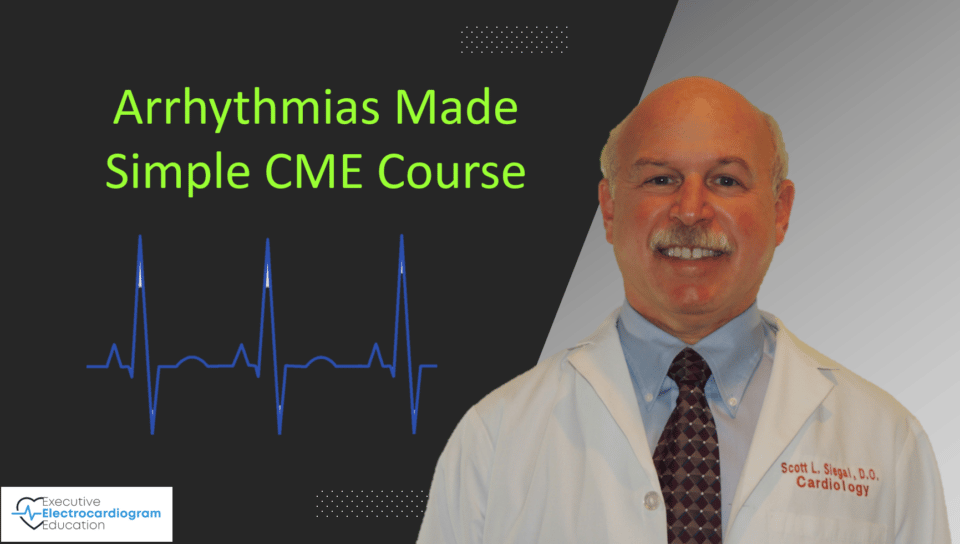Arrhythmias Made Simple is the best course for medical professionals who need to interpret cardiac rhythms and wants Category 1 Continuing Medical Education (CME) Credits (Earn up to 2.25 AOA Category 1A / AMA PRA Category 1 CreditTM).
This course teaches how to recognize normal and abnormal heart rhythms and how to properly name these rhythms. The course begins with basic concepts such as identifying all of the waveforms, to advanced topics like pacemaker rhythms. Beginners and seasoned rhythm readers will feel comfortable with this course. Novices will easily learn to interpret rhythms. Accomplished providers will hone their skills.
Arrhythmias Made Simple is a 2.25-hour online, interactive, video course divided into 12 short chapters. The material can be rewatched as many times as you want to help solidify the information. Each chapter contains a short self-assessment quiz to help you check your progress if desired. This course is accessible 24/7/65 on any device. Videos are succinct with detailed illustrations and audio descriptions that go at a gentle pace for better comprehension. The videos are set up to feel as if a cardiologist is giving you one-on-one instruction. Once the course is complete you are given access to the 10-questions, Category 1 CME test. Successful completion of the test requires an 80% score. Up to three (3) tries are given on the test if needed. Access to the course and test is 1 year from the time of enrollment. Partial credit is not awarded.
Topics include:
- Understanding the basic cardiac electrical system and ECG machine basics
- Determining the heart rate
- Naming heart rhythms
- Understanding normal and abnormal heart rhythms
- Assessing and distinguishing sinus rhythms, atrial rhythms, junctional rhythms, supraventricular tachycardia, and ventricular rhythms.
- Understanding basic pacemaker rhythms
This course is best for providers in need of arrhythmia recognition training or honing arrhythmia recognition skills. This includes telemetry technicians, nurses, MAs, EMTs, physical therapists, kinesiologists, etc.



